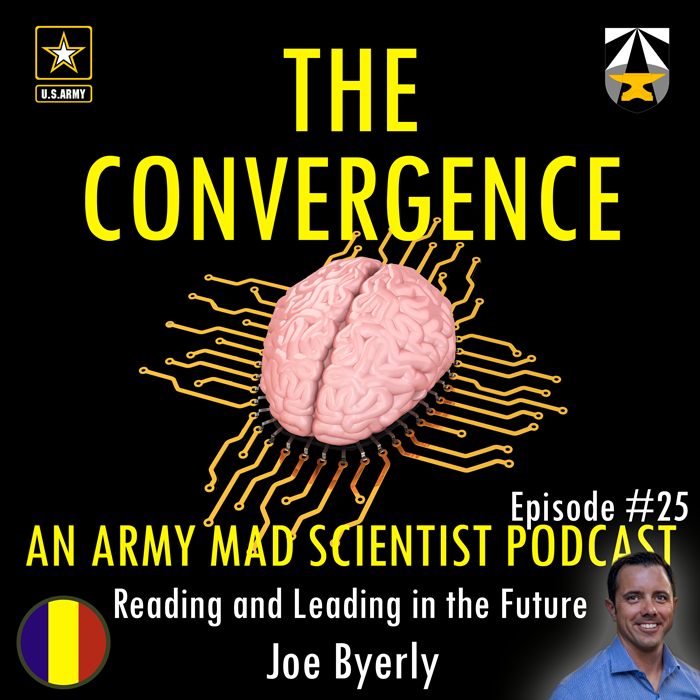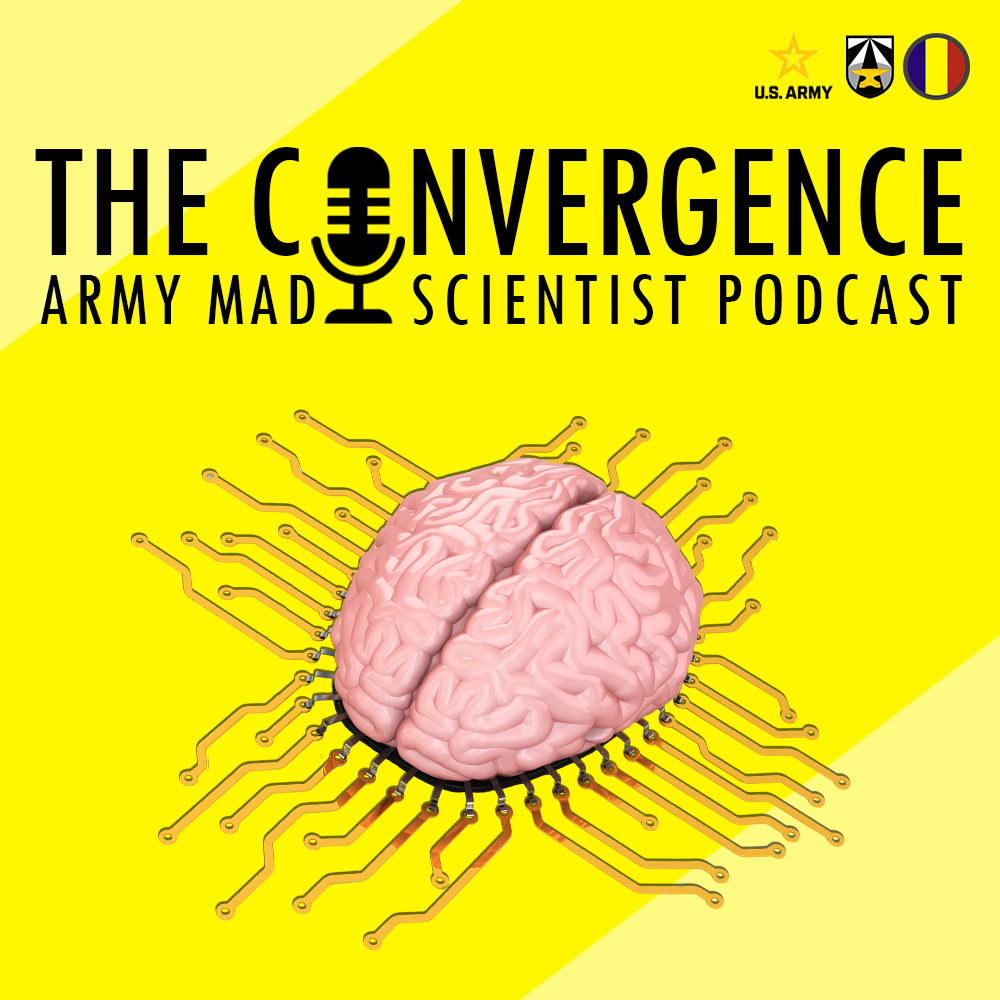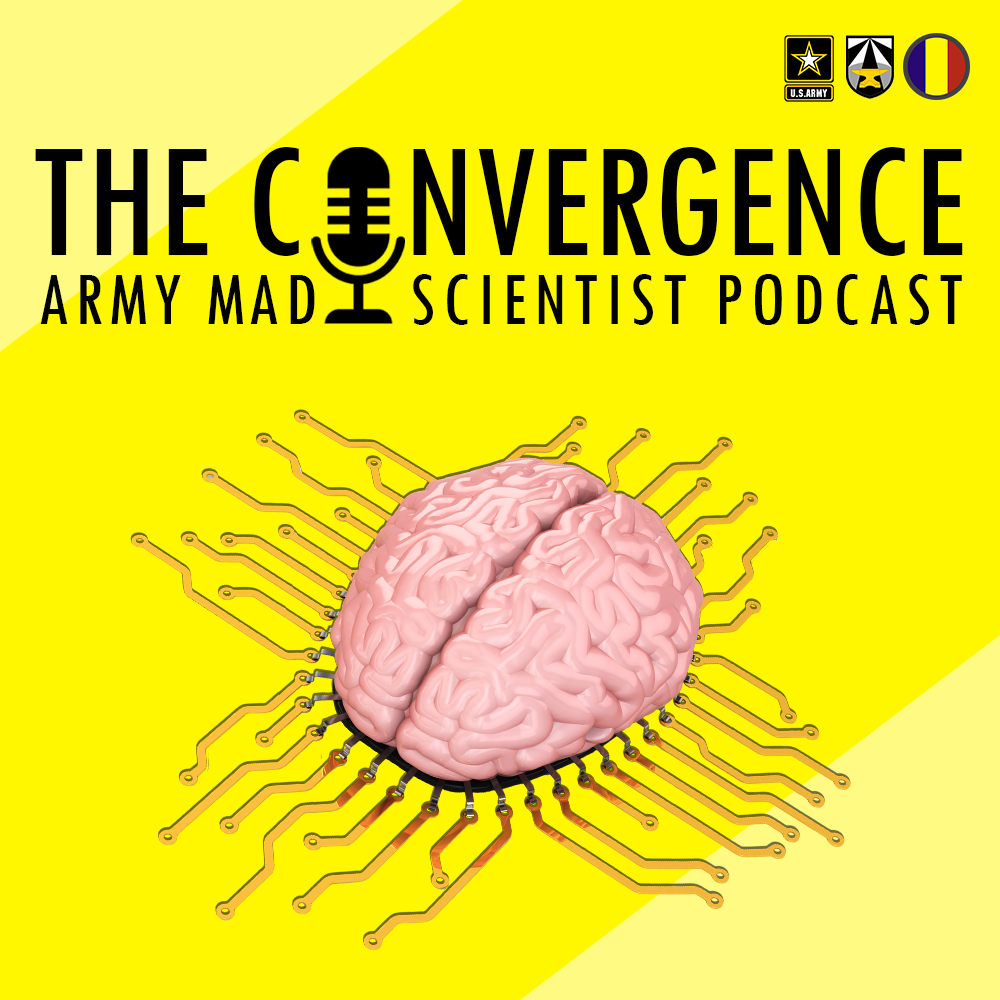[Editor’s Note: Regular readers of the Mad Scientist Laboratory are familiar with the potentially disruptive effects of cognitive and neurowarfare. As guest blogger Robert McCreight observed, “Most non-kinetic threats — or the NKT spectrum — consist of silent, largely undetectable technologies capable of inflicting damaging, debilitating, and degrading physical and neural effects on its unwitting targets… A determined and patient covert enemy can inflict strategic damage non-kinetically before we can recognize the attack, resist it, or recover from it.” Overmatch in the Land, Air, Sea, Space, and Cyber Domains is irrelevant if our adversaries can harness and unleash capabilities that manipulate the brains of our Leaders.
In our latest episode of The Convergence podcast, we sit down with Dr. Guosong Hong, Assistant Professor of Materials Science and Engineering at Stanford University, to explore emergent research behind one such NKT — brain manipulation. Dr. Hong discusses neuro-engineering tools, controlling brains from a distance, and how the Army might one day need to protect our Soldiers and Leaders against mind control — Read on!]
Dr. Guosong Hong is Assistant Professor of Materials Science and Engineering at Stanford University. His research aims to bridge materials science and neuroscience, and blur the distinction between the living and non-living worlds by developing novel neuro-engineering tools to interrogate and manipulate the brain. Specifically, the Hong lab is currently developing ultrasound, infrared, and radiofrequency-based in-vivo neural interfaces with minimal invasiveness, high spatiotemporal resolution, and cell-type specificity.
Dr. Guosong Hong received his PhD in chemistry from Stanford University in 2014, and then carried out postdoctoral studies at Harvard University. Dr. Hong joined Stanford Materials Science and Engineering and Neurosciences Institute as an assistant professor in 2018. He is a recipient of the NIH Pathway to Independence (K99/R00) Award, the MIT Technology Review ‘35 Innovators Under 35’ Award, the Science PINS Prize for Neuromodulation, the NSF CAREER Award, the Walter J. Gores Award for Excellence in Teaching, and the Rita Allen Foundation Scholars Award.
Army Mad Scientist sat down with Dr. Hong to discuss neuro-engineering tools, controlling brains from a distance, and how the Army might one day need to protect Soldiers against mind control. The following bullet points highlight key insights from our conversation:
Stay tuned to the Mad Scientist Laboratory for our next episode of The Convergence podcast on 08 February 2024, when we sit down with Dr. Olga Bannova, Director of the Space Architecture Graduate Program at the University of Houston, to discuss space architecture for habitats and systems, and how the Army could apply these habitat concepts to extreme environments on Earth.
If you enjoyed this post and podcast, check out the following related content:
Non-Kinetic Threats and the Threshold Spectrum of Strategic Endgame Warnings, by Robert McCreight
Non-Kinetic War, by COL Stefan J. Banach (USA-Ret.)
In the Cognitive War – The Weapon is You! by Dr. Zac Rogers
Hybrid Threats and Liminal Warfare and associated podcast, with proclaimed Mad Scientist Dr. David Kilcullen
The Classified Mind – The Cyber Pearl Harbor of 2034, by proclaimed Mad Scientist Dr. Jan Kallberg
Cyborg Soldier 2050: Human/Machine Fusion and the Implications for the Future of the DOD and its associated report from the U.S. Army Combat Capabilities Development Command (DEVCOM) Chemical Biological Center
China’s Brain Trust: Will the U.S. Have the Nerve to Compete? by proclaimed Mad Scientist Dr. James Giordano, as well as his Neuroscience, Neurotechnology, and the Future of War and Neuroscience and the Weapons of War podcasts, hosted by our colleagues at the Modern Warfare Institute
One Brain Chip, Please! Neuro-AI with two of the Maddest Scientists and associated podcast, with proclaimed Mad Scientists Dr. James Giordano and Dr. James Canton
Universal Soldier, by proclaimed Mad Scientist Master Sergeant Greg A. McGowan
Linking Brains to Machines, and Use of Neurotechnology to the Cultural and Ethical Perspectives of the Current Global Stage and Designer Genes: Made in China? by Dr. James Giordano and Joseph DeFranco
Connected Warfare by COL James K. Greer (USA-Ret.)
The Last Frontier, by PFC Peter Brenner
Ethics, Morals, and Legal Implications; Ethical Dilemmas of Future Warfare; and The Ethics and the Future of War panel discussion, facilitated by LTG Jim Dubik (USA-Ret.)
Disclaimer: The views expressed in this blog post and podcast do not necessarily reflect those of the U.S. Department of Defense, Department of the Army, Army Futures Command (AFC), or Training and Doctrine Command (TRADOC).

In this episode of “The Convergence,” we discuss reading and its implications on leadership and forecasting, the future of command selection, and cultivating effective...

[Editor’s Note: Today’s The Convergence podcast welcomes back Ben Van Roo, recent author of our Unlocking TRADOC’s Potential with GenAI: Opportunities and Challenges blog...

In today’s interview, Senior Leaders and Soldiers discuss how the Army is successfully harnessing its disruptive thinkers to cultivate innovation at the tactical level....